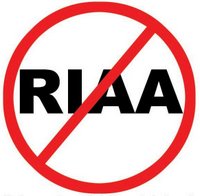 In a case that could have serious implications for future music piracy lawsuits, a New York District Judge ruled Thursday that a defendant's motion to argue the current statutory damage structure used in the case is unconstitutional may go forward.
In a case that could have serious implications for future music piracy lawsuits, a New York District Judge ruled Thursday that a defendant's motion to argue the current statutory damage structure used in the case is unconstitutional may go forward.Universal Music Group and several other labels are suing Brooklyn, New York resident Marie Lindor, and are attempting to collect a $750 per-song penalty. However, Lindor's attorneys argue that the demand is excessive.
"The statutory damages sought by plaintiffs are unconstitutionally excessive and disproportionate to any actual damages that may have been sustained, in violation of the Due Process Clause," her attorneys said in a filing.
Judge J. Trager agreed, noting that the amount is some 1,071 times the actual damages suffered, which are approximately 70 cents per song. "[The plaintiffs] can cite to no case foreclosing the applicability of the due process clause to the aggregation of minimum statutory damages proscribed under the Copyright Act," he wrote in his ruling.
"A court may extend its current due process jurisprudence prohibiting grossly excessive punitive jury awards to prohibit the award of statutory damages mandated under the Copyright Act if they are grossly in excess of the actual damages suffered," Trager added.
The ruling now forces the recording industry to both produce witnesses and documents on the wholesale price of music downloads. Such documents could for the first time give a look into how much money the music industry is making from online music.
The RIAA had not publicly commented on the case as of press time.
By Ed Oswald, BetaNews
Jazz from Amazon.com
Technorati Tags: Jazz, Smooth Jazz, Music
No comments:
Post a Comment